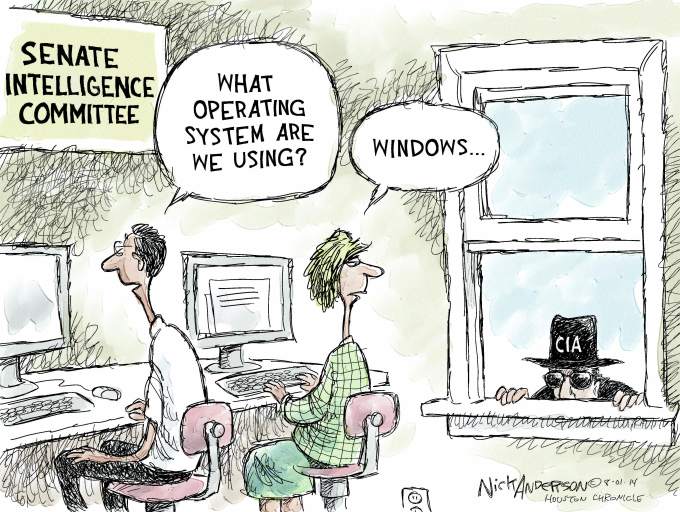

Back doors in Windows are nothing new, but the media does not discuss them too often (unlike iOS back doors). Earlier this week, according to this report, "IT security firm Kaspersky Cyber security firm Kaspersky [...] claimed it has detected an old, widely known vulnerability that was used in a cyber attack to sabotage Iran's nuclear programme in some versions of Windows platform across 19 million computers, including in India."
"Countries that the US does not like would be utterly irresponsible to still deploy and use proprietary software from the United States after all that."The press seems to have quickly move on, without ever connecting it to material from NSA leaks showing Microsoft complicity with the NSA. Countries that the US does not like would be utterly irresponsible to still deploy and use proprietary software from the United States after all that.
China has already banned Windows and Russia moves away from x86 (hence no Windows). China is now banning Apple operating systems as well. Is Russia next? They've asked Apple and SAP for source code, having silently kicked Microsoft out (by moving to ARM).
According to this report from China, Microsoft is asked to obey the law it so often ignores (it is said to be bribing Chinese officials and engaging in other serious crimes). The report says: "Microsoft isn't exactly welcome in China nowadays. The company and the government have many issues between them. The software company is believed to be guilty of breaching Chinese antitrust rules.
"Microsoft was told not to obstruct the antitrust investigation by Chinese regulators by the State Administration for Industry and Commerce (SAIC).
"Special investigations by the Chinese government are common these days. It seems the SAIC only wants to make sure Microsoft isn't doing anything that is against the law."
China has meanwhile moved on to banning the other NSA back doors [1, 2, 3, 4, 5, 6, 7, 8, 9, 10, 11] and one article makes it clear that all Apple operating systems are banned:
China seems to be on a mission to isolate itself from the world, at least in terms of technology. After banning Windows 8 on government PCs and raiding several of Microsoft's offices in China as part of an anti-trust investigation, Chinese officials have now prohibited to purchase of several Apple products for government use.
We have often written about how software patents feed trolls and tax innovation. We’ve pushed for patent reform in Congress, in the courts, and at the Patent Office. While new legislation has stalled (for now), reformers have won significant victories in the courts. Of these, the Supreme Court’s recent decision in Alice Corp. v. CLS Bank may be the most important. In this case, the court issued a landmark decision cutting back on abstract software patents.